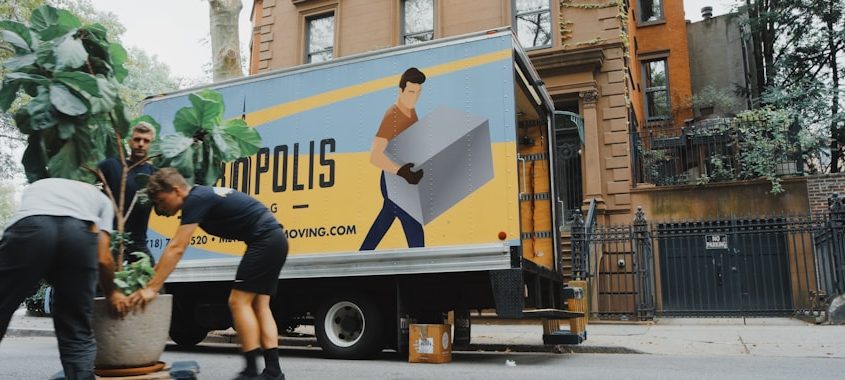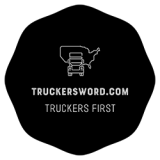From Profit to Loss: The Effect of Cheap In-House Tariffs on Driver Earnings in Household Moving

The household moving industry has undergone significant changes in recent years, driven by a variety of factors including technological advancements, changing consumer preferences, and economic shifts. These changes have had a profound impact on the way household moving companies operate, as well as on the livelihoods of the drivers who make these moves possible. As a result, the industry is facing a period of rapid transformation, with both challenges and opportunities for those involved.
The impact of in-house tariffs on driver compensation
One of the key factors driving change in the household moving industry is the rise of in-house tariffs, which have had a significant impact on driver compensation. In-house tariffs are fees that are charged by moving companies to their drivers for the use of company-owned equipment and resources. While these tariffs can help companies offset their own costs, they have also led to a decrease in driver compensation, as drivers are now responsible for covering these additional expenses out of their own pockets. This has put a strain on many drivers, who are already facing rising fuel costs and other expenses associated with their work.
The impact of in-house tariffs on driver compensation has been significant, leading to a decrease in take-home pay for many drivers. This has made it increasingly difficult for drivers to make a living in the household moving industry, and has led to a growing sense of frustration and dissatisfaction among those who work in the field. As a result, many drivers are now looking for alternative ways to make a living, while others are considering leaving the industry altogether. This has created a challenging environment for both drivers and moving companies, as they struggle to find a balance between profitability and fair compensation for their employees.
How cheap in-house tariffs have affected the competitiveness of household moving
In addition to impacting driver compensation, cheap in-house tariffs have also had a significant impact on the competitiveness of the household moving industry as a whole. As moving companies have sought to cut costs and increase their profit margins, they have turned to in-house tariffs as a way to offset their own expenses. While this may benefit the companies in the short term, it has also led to a decrease in the quality of service provided to customers, as well as a decrease in overall competitiveness within the industry.
Cheap in-house tariffs have made it increasingly difficult for smaller moving companies to compete with larger, more established firms. This has led to a consolidation within the industry, with many smaller companies being forced out of business or being acquired by larger competitors. As a result, there are now fewer options available to consumers when it comes to choosing a household moving company, and those that remain may not always offer the best service or value for money. This has created a challenging environment for both consumers and moving companies alike, as they struggle to find a balance between affordability and quality.
The role of technological advancements in reducing the need for drivers
Technological advancements have also played a significant role in shaping the changing landscape of household moving. In recent years, there has been a rise in the use of automation and other technologies within the industry, which has led to a decrease in the need for drivers. For example, many moving companies are now using automated systems to schedule and track deliveries, reducing the need for human intervention and oversight. This has led to a decrease in the demand for drivers, as well as a decrease in overall job security within the industry.
The role of technological advancements in reducing the need for drivers has had a profound impact on those who work in the household moving industry. Many drivers are now finding it increasingly difficult to secure steady work, as companies turn to automation and other technologies to streamline their operations. This has led to a decrease in job satisfaction and overall morale among drivers, as they struggle to find ways to adapt to these changes. As a result, many are now looking for alternative ways to make a living, while others are considering leaving the industry altogether.
The emergence of alternative transportation options for household moving
In response to these changes, there has been an emergence of alternative transportation options for household moving in recent years. For example, many consumers are now turning to peer-to-peer moving services, which connect them with independent drivers who can help them move their belongings at a lower cost than traditional moving companies. This has created new opportunities for drivers who are looking for alternative ways to make a living, while also providing consumers with more options when it comes to choosing a moving service.
The emergence of alternative transportation options for household moving has also led to an increase in competition within the industry. As more independent drivers enter the market, traditional moving companies are being forced to adapt and find new ways to compete. This has led to a greater focus on customer service and value for money, as companies seek to differentiate themselves from their competitors. As a result, consumers now have more options available to them when it comes to choosing a household moving service, and can often find better deals and higher quality service as a result.
The challenges faced by drivers in the current household moving industry
Despite these changes, drivers in the household moving industry continue to face a number of challenges as they navigate the changing landscape of their profession. In addition to decreased compensation and job security, many drivers also face long hours and difficult working conditions, as they strive to meet the demands of their customers while also dealing with the pressures of their employers. This has led to a decrease in overall job satisfaction and morale among drivers, as they struggle to find ways to adapt to these challenges.
The challenges faced by drivers in the current household moving industry have also had an impact on their mental and physical well-being. Many drivers report feeling stressed and overworked, as they struggle to balance their work and personal lives while also dealing with the pressures of their job. This has led to an increase in burnout and turnover within the industry, as many drivers look for alternative ways to make a living or leave the industry altogether. As a result, there is now a growing need for solutions that can help drivers adapt to these challenges and find ways to thrive in the changing landscape of household moving.
Potential solutions for drivers to adapt to the changing landscape of household moving
In response to these challenges, there are a number of potential solutions that can help drivers adapt to the changing landscape of household moving. For example, many drivers are now turning to peer-to-peer moving services as a way to supplement their income and find new opportunities for work. This can provide them with greater flexibility and control over their schedules, while also allowing them to connect with customers directly and provide a more personalized service, Atlas world wide, Wheaton van lines, allied, united van lines, have to offer better line haul percentages and increase their tariffs to offset the economy inflation, the price of labor, the cost of fuel, the increasing cost for truck repairs, many moving company’s have stabbed the drivers in the back, a way of thanking them for their long dedication and services.
In addition, there is also a growing need for greater support and advocacy for drivers within the household moving industry. This can include efforts to improve working conditions and compensation for drivers, as well as initiatives that provide them with greater access to training and resources that can help them succeed in their profession. By working together with industry stakeholders and policymakers, drivers can help shape the future of household moving and find new ways to thrive in an ever-changing industry.
The household moving industry is undergoing significant changes that are impacting both companies and drivers alike. From the rise of in-house tariffs and technological advancements to the emergence of alternative transportation options, there are many factors driving this transformation. As a result, there is now a growing need for solutions that can help drivers adapt to these changes and find new opportunities for work. By working together with industry stakeholders and policymakers, drivers can help shape the future of household moving and find new ways to thrive in an ever-changing industry.
One way is for all drivers to shut down for several days and support one another like they used to, get rid of the Me, Me, Me attitude and i promise you it will all be about, Us, Us, Us
Without the trucking industry and the dedicated drivers, this country would have nothing.








